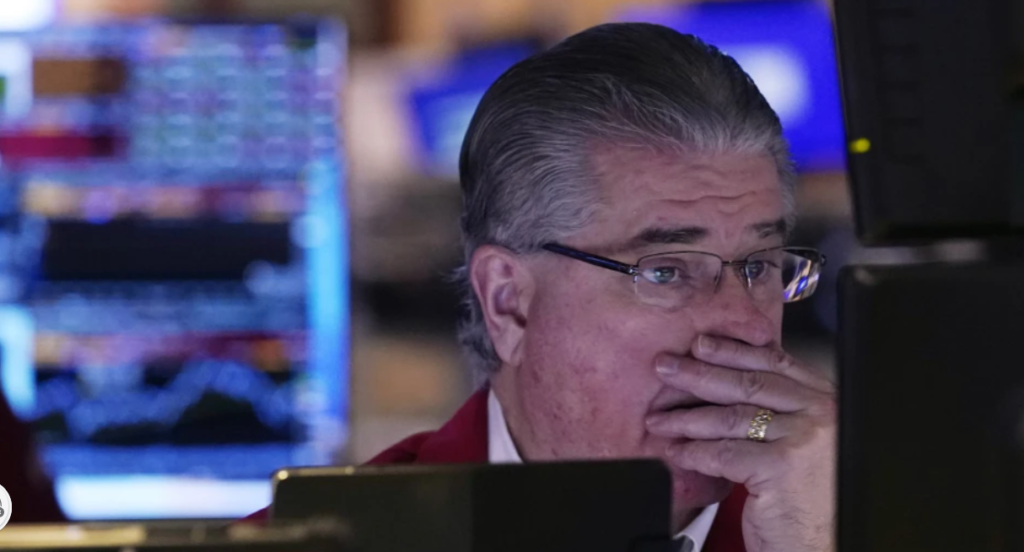Wall Street showed mixed results on Wednesday, as investors shifted their focus from President Donald Trump’s tariffs to the profits companies are generating.
The S&P 500 was down by 0.1% in early trading, following a mixed performance in European and Asian markets. The Dow Jones Industrial Average gained 22 points, or 0.1%, at 9:35 a.m. Eastern, while the Nasdaq composite dropped 0.5%.
Alphabet saw a significant drop of 7.5%, despite reporting stronger-than-expected profits for the latest quarter. Investors were more concerned with the slower growth in its cloud business, which missed projections. They also focused on the company’s planned $75 billion investment for this year, which is about $15 billion more than analysts had predicted, as Alphabet continues its push to develop artificial intelligence technology.
Pressure on Alphabet from Wall Street is mounting, with investors now questioning what new products or innovations will justify the company’s increased investment levels, according to analysts at UBS, led by Stephen Ju.
Advanced Micro Devices (AMD) faced an even steeper decline, dropping 10.1%, despite surpassing profit expectations for the latest quarter. The chipmaker’s struggles were largely due to high investor expectations. While CEO Lisa Su’s company projected a revenue growth of 30% for the first quarter of 2025, the forecast’s midpoint fell short of analysts’ more optimistic expectations.
Although analysts deemed AMD’s results solid, they questioned why CEO Lisa Su did not provide more specific details on the performance of the company’s AI products.
On the other hand, toymaker Mattel helped curb market losses, rising 13.5% after exceeding analysts’ profit expectations for the latest quarter.
Meanwhile, The Walt Disney Company shifted from an early gain to a 0.9% loss, despite posting a stronger profit for the quarter, largely due to the success of its “Moana 2” movie.
Investors typically expect companies to report strong profits, but the pressure may be higher than usual due to the uncertainty surrounding the global economy, especially with President Trump’s tariffs.
After causing significant turbulence in financial markets earlier this week, concerns about a potential global trade war have slightly eased. Trump granted 30-day reprieves to both Mexico and Canada, leading traders to believe that the tariffs are more of a negotiating tactic rather than a long-term strategy.
Goldman Sachs economist David Mericle suggests that an extension of these reprieves is likely, but the tariff risk for both countries could persist until the United States finishes its review of the existing trade agreement, potentially by mid-next year.
Meanwhile, Trump has continued to impose tariffs on Chinese goods, and Mericle predicts that tariffs on products from the European Union could be next. This could result in a temporary spike in inflation, pushing the underlying inflation measure to 2.6% in December, above the Federal Reserve’s 2% target.
One of the concerns affecting Wall Street is the potential impact of rising inflation on the Federal Reserve’s decision-making. Investors fear that inflationary pressure may prevent the Fed from continuing to cut interest rates, especially after it started doing so in February to ease the strain on the economy and support the job market.
On Wednesday, bond market yields were easing, with the 10-year Treasury yield falling from 4.52% to 4.44%.
Internationally, European stock markets showed mixed results, with relatively small movements. In Asia, Hong Kong’s Hang Seng Index dropped by 0.9%, while South Korea’s Kospi gained 1.1%.
Japan’s Nikkei 225 rose slightly by 0.1%, with Honda Motor Co. seeing a jump after reports suggested its talks to form a joint holding company with rival Nissan Motor Co. were falling apart. As a result, Nissan’s stock dropped by 4.9%.

